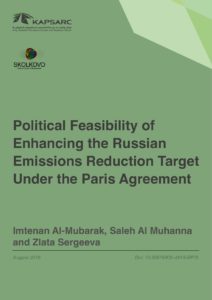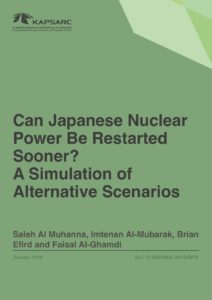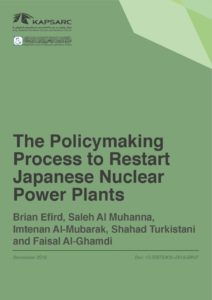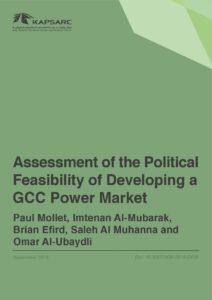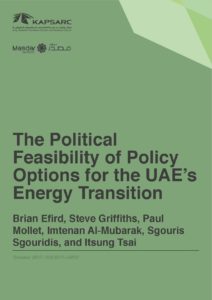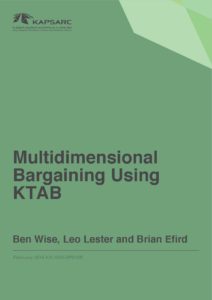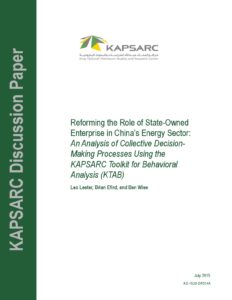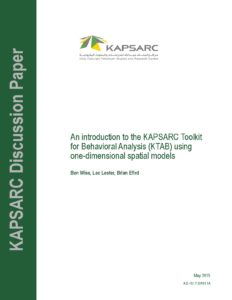Imtenan Al-Mubarak is a Project Planning and Management director. She was previously a research fellow at KAPSARC, focusing on policy research with an emphasis on data science and machine learning. Before joining KAPSARC, Imtenan worked at several companies in Chicago, and at Electronia in Dammam and Saudi Aramco in Dhahran, Saudi Arabia. She holds a master’s degree with distinction from DePaul University, Chicago, for which she was awarded the Golden Key International Honor. She is a certified Project Management Professional (PMP) and a member of several professional organizations. She is a Future Energy Leader at the World Energy Council in London and a board member at a non-profit organization in San Francisco. She also holds a patent in the United States (issued November 8, 2016).
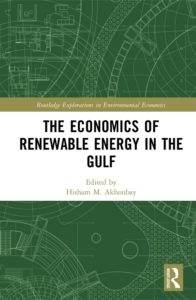
The Economics of Renewable Energy in the Gulf
The Cooperation Council for the Arab States of the Gulf (GCC) has been at the epicenter of global energy markets because of its substantial endowment of hydrocarbons. Yet countries in the region have also stated their intent to be global leaders in renewable energy. This collection explores the drivers for the widespread adoption of renewable energy around the GCC, the need for renewable energy and the policy-economic factors that can create success. https://www.routledge.com/The-Economics-of-Renewable-Energy-in-the-Gulf-1st-Edition/Akhonbay/p/book/9781138351905 Contributors: Ghada Abdulla, Hisham Akhonbay, Abdullah Al-Badi, Walid Ali, Odeh Al-Jayyousi, Imtenan Al-Mubarak, Maha Alsabbagh, Omar Al-Ubaydli, Moiz Bohra, Sylvain Cote, Nasreddine El-Dehaibi, Amro Elshurafa, Bassam Fattouh, Stephen Gitonga, Steve Griffiths, Marwan Khraisheh, Walid Matar, Daniah Orkoubi, Rahmatallah Poudineh, Shreekar Pradhan, Antonio Sanfilippo, Anupama Sen, Marilyn Smith, David Wogan, Lama Yaseen, Karen Young.
17th October 2018
